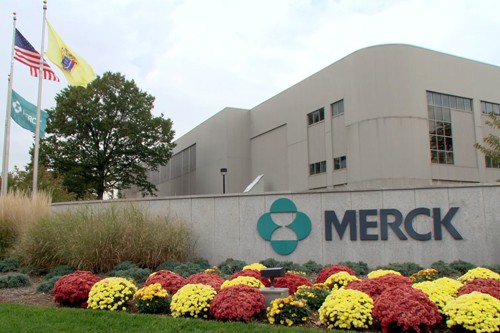
Merck & Co – known as MSD outside the US and Canada – has shared positive results from a late-stage trial of its anti-PD-1 therapy Keytruda (pembrolizumab) in certain breast cancer patients.
The phase 3 KEYNOTE-756 study has been evaluating Keytruda in combination with chemotherapy as neoadjuvant treatment for surgical removal of their tumour, followed by Keytruda plus endocrine therapy as adjuvant treatment after surgery, for patients with high-risk, early-stage ER-positive/HER2-negative breast cancer.
Results from the neoadjuvant part of the trial showed that Keytruda plus chemotherapy was associated with a statistically significant improvement in pathological complete response (pCR) rate compared to placebo plus chemotherapy, with pCR rates increasing from 15.6% in patients treated with neoadjuvant chemotherapy alone to 24.3% in those treated with the Keytruda combination.
The safety profile of Keytruda was consistent with that observed in previously reported studies, Merck said, adding that the trial will continue to evaluate the other dual primary endpoint of event-free survival.
Gursel Aktan, vice president, global clinical development, Merck Research Laboratories, said: “KEYNOTE-756 is the first positive phase 3 trial with an immunotherapy regimen to demonstrate a statistically significant improvement in pCR rate in the neoadjuvant setting for patients with high-risk, early-stage ER-positive, HER2-negative breast cancer.
“These results support the potential of a Keytruda-based regimen for more patients with difficult-to-treat types of early-stage breast cancer.”
In the US, it is estimated there will be approximately 298,000 people diagnosed with breast cancer and 43,700 deaths from the disease this year.
Of all breast cancer patients, about 70% will be diagnosed with hormone receptor-positive, HER2-negative disease. Disease recurrence following surgery for this type of cancer is most common within five years, Merck outlined, and patients with high-risk features have a greater chance of recurrence.
“With high rates of recurrence, patients with high-risk, early-stage ER-positive, HER2-negative breast cancer are in need of new treatment options,” said Dr Fatima Cardoso, co-principal investigator of the trial and director of the Breast Unit of the Champalimaud Clinical Centre in Portugal.
She added: “While we await results from the dual primary endpoint of event-free survival, we are encouraged by data from KEYNOTE-756 in which the Keytruda-based regimen demonstrated a statistically significant improvement in pCR rate compared to chemotherapy.”




